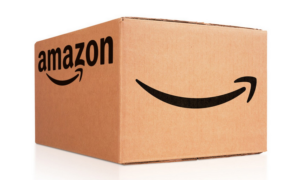The Amazon in the Living Room
 First, and hope you were paying attention, if you own Amazon products: Amazon will activate its Sidewalk network on June 8 and automatically connect your Echo and Ring devices with those owned by strangers. Here’s how to opt out.
First, and hope you were paying attention, if you own Amazon products: Amazon will activate its Sidewalk network on June 8 and automatically connect your Echo and Ring devices with those owned by strangers. Here’s how to opt out.
Next, in case you missed it, as @RealSpikeCohen tweeted,
The Senate is considering giving a $10 billion bailout to Jeff Bezos’ space company. In totally unrelated news, Jeff Bezos is buying MGM Studios for $8.5 billion.
Before you jump to conclusions, we do need to point out that (cash-rich) Amazon obviously needs the money/bailout. After all, they’re now facing a big anti-trust case. As Shira Ovide wrote in the New York Times (The Big Deal in Amazon’s Antitrust Case The claim that Amazon is crushing competition is both novel and railroad baron-style old-school), “D.C. attorney general, Karl Racine is making a legal argument against Amazon that is both old-school and novel, and it might become a blueprint for crimping Big Tech power.” Racine is making the claim that Amazon isn’t just crushing competitors but raising consumer prices in the process.
“It’s a longstanding claim by some of the independent merchants who sell on Amazon’s digital mall that the company punishes them if they list their products for less on their own websites or other shopping sites like Walmart.com. Those sellers are effectively saying that Amazon dictates what happens on shopping sites all over the internet, and in doing so makes products more expensive for all of us…If a merchant lists a product for less on another site, Amazon can respond by making it more cumbersome for a shopper to buy the item.”
As Big pointed out (Amazon Prime Is an Economy-Distorting Lie), the false promise of ‘free shipping’ that is anything but free.
“Free shipping is also the backbone of Prime. Amazon founder Jeff Bezos knew that the number one pain point for online buyers is shipping – one third of shoppers abandon their carts when they see shipping charges. Bezos helped invent Prime for this reason, saying the point of Prime was to use free shipping “to draw a moat around our best customers.” The goal was to get people used to buying from Amazon, knowing they wouldn’t have to worry about shipping charges. Once Amazon had control of a large chunk of online retail customers, it could then begin dictating terms of sellers who needed to reach them.”
Said Bezos in 2015, “FBA (Fulfillment By Amazon) is so important because it is glue that inextricably links Marketplace and Prime. Thanks to FBA, Marketplace and Prime are no longer two things. Their economics . . . are now happily and deeply intertwined.”
‘Free’ is passed along to the vendors. Someone always pays. And considering how (even more) deeply entrenched Amazon has become, in no small part thanks to the lockdown and the ‘temporary’ shuttering of smaller brick and mortars, they have been arbitrarily raising their prices – because they can. Example: they’d raised the price 50% on an item we had been purchasing from them for years, yet found the identical item on another site for the original price.
Many Amazon items are also available on eBay, Kmart shoppers. Often with free shipping.
The public has grown accustomed to devolving to the products built and/or owned by the tech cabal – Amazon, Twitter, Google, Facebook et al – out of routine. There are alternatives and as we’re seeing with Amazon and their monopolistic practices – which are not exclusive to Amazon (Harming Competition and Consumers under the Guise of Protecting Privacy: An Analysis of Apple’s iOS 14 Policy Updates) – ‘free’ always comes at a price. It’s easy to miss the elephant in the living room, but as we’ve come to see, it can be dangerous to ignore the Amazon. Onward and forward.